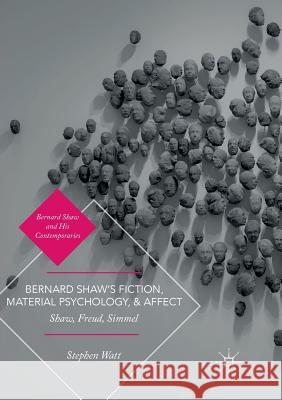Bernard Shaw's Fiction, Material Psychology, and Affect: Shaw, Freud, Simmel » książka
topmenu
Bernard Shaw's Fiction, Material Psychology, and Affect: Shaw, Freud, Simmel
ISBN-13: 9783030100674 / Angielski / Miękka / 2019 / 235 str.
Kategorie:
Kategorie BISAC:
Wydawca:
Palgrave MacMillan
Seria wydawnicza:
Język:
Angielski
ISBN-13:
9783030100674
Rok wydania:
2019
Wydanie:
Softcover Repri
Ilość stron:
235
Waga:
0.30 kg
Wymiary:
21.01 x 14.81 x 1.35
Oprawa:
Miękka
Wolumenów:
01
Dodatkowe informacje:
Wydanie ilustrowane











